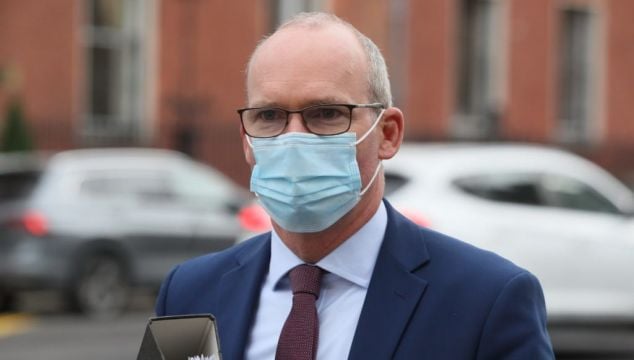Minister for Foreign Affairs, Simon Coveney has said that it was the primary responsibility of the British government and prime minister to fulfil the commitments they have made and not to breach international law.
“The primary responsibility for ensuring that Britain's responsibilities under international law and treaties that they've signed lies the British government - not with devolved institutions in Northern Ireland that are no longer functioning,” he told Newstalk Breakfast.
“The obligation here is very much with the British government and with the British prime minister to fulfil the commitments that they've made, and not to breach international law.”
He added that The EU has made that very clear to the British government.
The DUP was alone on its approach, said Mr Coveney. Their actions were political. “What's happened now is we have the DUP on one side of the argument, who are saying that they have been threatening to collapse the institutions in Northern Ireland for some time in protest at the protocol because they want to see change.
Northern Ireland elections
“All of the other parties in Northern Ireland are saying that shouldn't happen, we need to work together.”
While there were differences between the parties, collapsing Stormont was a “very unfortunate, unwelcome move.
“What it means now is that even though there aren't going to be elections in Northern Ireland until May, and we are moving into an election cycle, it means that effectively the assembly and the executive is now paralysed.”
Later on RTÉ radio’s Morning Ireland, Mr Coveney said that the DUP's decision had been unhelpful, but that it did not change the fact that negotiations were continuing between Liz Truss and Marcos Sefcovic.
The Minister added that the move by Edwin Poots on border checks was also “not helpful” and he was glad that the checks were continuing.
People were working “night and day” to respond to the legitimate concerns about the protocol. “My job is to try to find ways to settle concerns about the protocol.”







